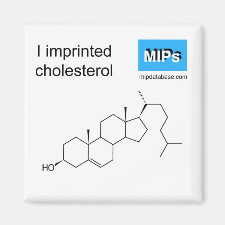
Authors: Malhotra BD, Chaubey A, Singh SP
Article Title: Prospects of conducting polymers in biosensors.
Publication date: 2006
Journal: Analytica Chimica Acta
Volume: 578
Issue: (1)
Page numbers: 59-74.
DOI: 10.1016/j.aca.2006.04.055
Alternative URL: http://www.sciencedirect.com/science/article/B6TF4-4JV448C-8/2/717b3bf6f1d4b8849caf806e10943670
Abstract: Applications of conducting polymers to biosensors have recently aroused much interest. This is because these molecular electronic materials offer control of different parameters such as polymer layer thickness, electrical properties and bio-reagent loading, etc. Moreover, conducting polymer based biosensors are likely to cater to the pressing requirements such as biocompatibility, possibility of in vivo sensing, continuous monitoring of drugs or metabolites, multi-parametric assays, miniaturization and high information density. This paper deals with the emerging trends in conducting polymer based biosensors during the last about 5 years
Template and target information: Review - conducting polymers in biosensors
Author keywords: conducting polymer, biosensor, Soliton, Polaron, Bipolaron, enzyme, glucose oxidase, urease, Cholesterol oxidase, Deoxyribonucleic acid (DNA), Peptide nucleic acid (PNA), Microorganism, Amperometric, Potentiometric, immunosensor



Join the Society for Molecular Imprinting

New items RSS feed
Sign-up for e-mail updates:
Choose between receiving an occasional newsletter or more frequent e-mail alerts.
Click here to go to the sign-up page.
Is your name elemental or peptidic? Enter your name and find out by clicking either of the buttons below!
Other products you may like:
 MIPdatabase
MIPdatabase









